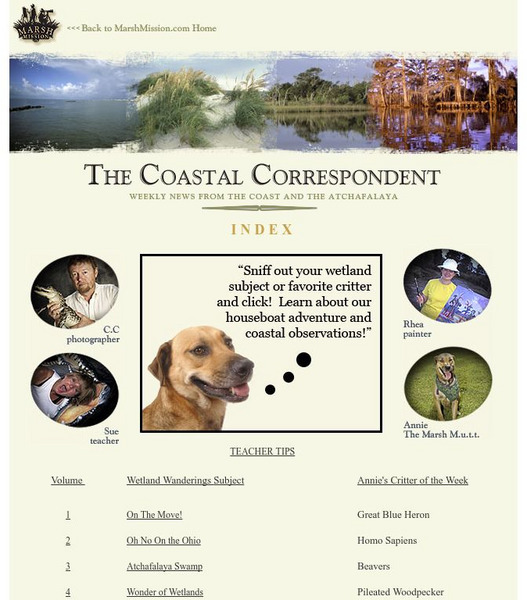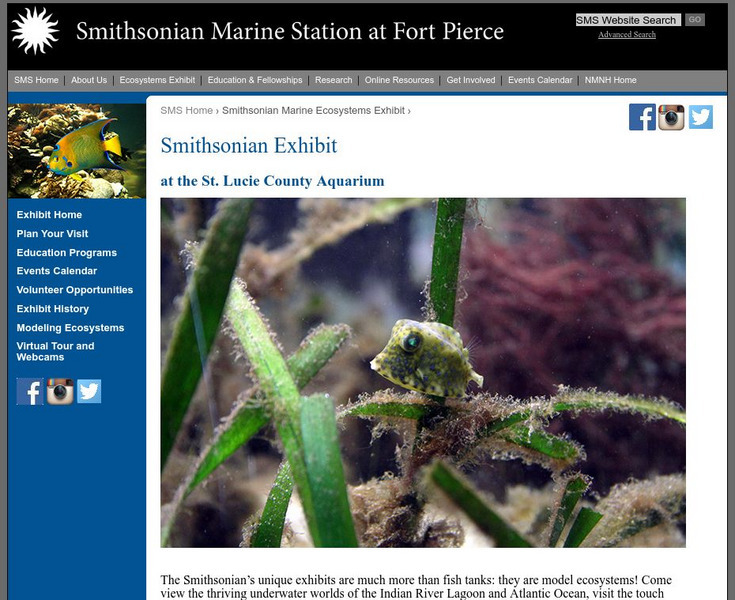Hi, what do you want to do?
Curated OER
Ecology Vocabulary
In this ecology activity, students read the vocabulary words and then categorize a species found in a field, meadow, or fencerow in their state or region. Students complete 6 problems.
Curated OER
Rainforests
Students watch a video about the rainforest and create a large wall mural of rainforest features. Students write a first person point of view article by an endangered rainforest animal and discuss logging.
Curated OER
Mississippi Gulf Coast Islands
Fourth graders complete a variety of exercises as they study the creation, history, and geography of the Mississippi coastal islands. They discover the natuaral forces that act on the islands and how these forces affect the habitats and...
Curated OER
Creative Problem Solving
Students respond to a situation presented about the wetlands. In this wetlands lesson, students understand the various opinions over the use of areas in the wetlands. Students complete a worksheet using critical thinking questions about...
Curated OER
Ecology Vocabulary Exercise: Wetlands
In this ecology vocabulary exercise: wetlands worksheet, students read the definitions of 8 words, then categorize a species found in a wetland in their region. This page has numerous links to helpful web resources.
Curated OER
Don't Cry Over Spilled Oil
Students study the Exxon Valdez Oil Spill while evaluating oil spill clean up activities. They discover the long term impact can have on an ecosystem by completing this experiment.
Science Struck
Science Struck: Desert Biome: A Guide to Its Animals and Plants
Describes many of the plants and animals that live in deserts and their special adaptations that have enabled them to survive there. Also describes four types of deserts.
Other
Rutgers Marine & Coastal Sciences: Cool Classroom
Students and teachers can explore the work of marine scientists and observe the ocean from their computers. Learn about Rutgers Coastal Ocean Observation Laboratory, discover why oceanography is important, and see what life is like in...
The Wild Classroom
The Wild Classroom: Biomes of the World: Coastal Ocean Biome
Learn about the coastal ecosystem. Find out about plants, animals, adaptations, and conservation efforts.
Other
Marsh Mission Coastal Correspondent
Follow CC and Rhea as they take their houseboat on a 1,000 mile journey through the wetlands of South Louisiana. Their mission is to document the beauty of the marsh and raise awareness of the problems that are destroying the beautiful...
Houghton Mifflin Harcourt
Harcourt: School Publishers: Exploring Ecosystems
Compare and contrast three very different ecosystems - the Sonoran Desert in Arizona, the Florida Everglades, and the Arctic Coastal Plain in Alaska. Learn what makes each of them unique, and about the adaptations plants and animals had...
Smithsonian Institution
National Museum of Natural History: Ocean Planet
Detailed website that was a companion to a 1995 traveling exhibit of the Smithsonian. Links to lesson plans and other educational materials are at the bottom of the page. Enter the exhibition to explore the world of the ocean.
Other
Monterey Bay Aquarium: Sandy Shore & Aviary
The online home of the sandy shore exhibit at the Monterey Bay Aquarium gives you access to an array of resources for learning about the kinds of animals (particularly, birds) and plants that live in coastal wetlands.
Smithsonian Institution
Smithsonian Marine Ecosystems Exhibit
Take an online tour of the Smithsonian's "Exploring Marine Ecosystems" exhibit. Learn about coral reefs and look behind the scenes as scientists maintain the model ecosystems.

















